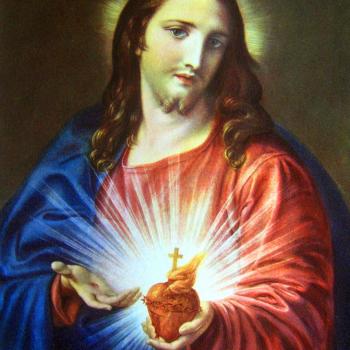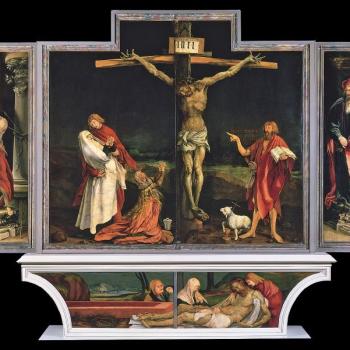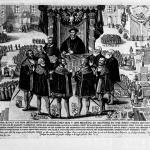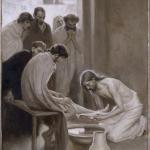As I mentioned the other week, Sr. Simone Campbell has shown herself to be a dreadful sexist (and a bit of an atheist) in her reflection on the Gospel accounts of the feeding of the 5,000 men. The question she posed, however, is a good one.
What she wanted to know is: Why do the Scriptures give a counting of the men present so specifically? We can’t even say the authors were using the term “men” in a generic way to mean “mankind” or “people.” The Bible clearly states that the estimated attendance numbers don’t include the number of women and children present. It’s a very specific statement in that respect, and there must be a reason for it.
We can only speculate, as the authors aren’t with us just now to give their answer. However, I’d propose that there is a line of speculation that not only might be true (or might be false), but that is an important point for us to note regardless.
That point is this: If you wanted to overthrow a government, you would need an army.
Now St. Matthew may have specified the man-count for some purely unrelated reason. Perhaps it was the custom. Perhaps the crowd was mostly men, and the number of women and children was relatively negligible. Perhaps he was emphasizing that these were very hungry people, not little old ladies with diminished appetites — especially if we recall that teenaged boys would have been included in the “man” figure.
But wittingly or unwittingly, the Gospel is also answering Gamaliel’s question: Is Jesus of Nazareth just another one in a long line of failed revolutionaries?
We’ve got this preacher and he’s gathering up very large groups of men. Adult men. They’re meeting out in a remote location. And get this: Jesus Christ is able to feed an army. Warfare problem #1 solved. Oh and another thing: If any of His guys get injured, He can just fix them. Instantly. Raise them from the dead, even. And by the way, He can control the weather, too.
The question we have, all the time, for God is: Why aren’t you fixing this?
The question the Gospels answer bit by bit is: Why yes, Christ had every ability to kick butt and take names.
Logistically speaking, the Crucifixion was in no way inevitable.
It would have been no difficulty for Jesus to overthrow the traitors among the Jewish leaders and the Romans both. The feeding of the 5,000 is in part the answer to the question Jesus never posed, but others might have been asking: You and what army?
***
What we are left with, then, is a God who is meek. That word rhymes with other words it doesn’t mean. What it does mean is longsuffering.
Humans take note, the Gospels imply, I your God am putting up with a whole lot of garbage I don’t have to put up with.
God can solve problems in a dramatic, spectacular, once-and-done fashion, and sometimes He does. There are plenty of such accounts in the Gospels and in the ongoing miraculous aid of our Lord over the centuries. But other times He lets the long, slow, painful way roll out unimpeded. (Or so it seems — we don’t really know just how bad things would be if God weren’t making them less-bad behind the scenes.)
This is miserable. The meek will eventually inherit the land, but first there are piles of suffering to endure.
The challenge for we Christians, therefore, is twofold. First, we have to abandon ourselves to the will of God even when God’s operating in that dreaded longsuffering-mode. Secondly, and more embarrassing: We must endeavor, inasmuch as possible, to not be the ones our Lord and our fellow men are so meekly enduring.

Photo by USAID U.S. Agency for International Development (IMG_0060Uploaded by Elitre) [CC BY-SA 2.0], via Wikimedia Commons
















